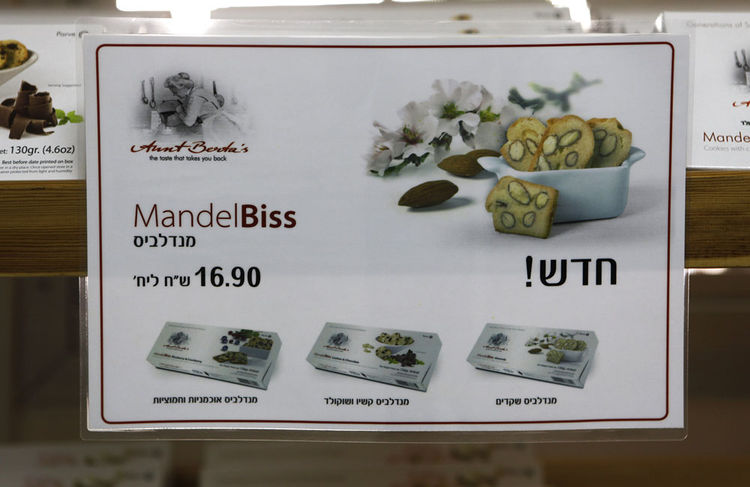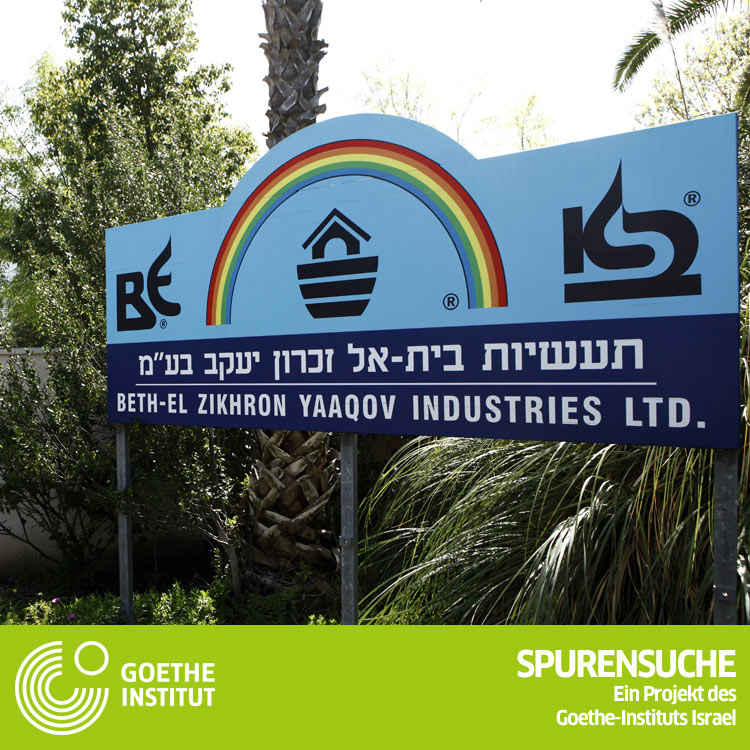Israel:German bread in the kibbutz: Unterschied zwischen den Versionen
K (Newline insert before newBox via script) |
|||
| (5 dazwischenliegende Versionen von 3 Benutzern werden nicht angezeigt) | |||
| Zeile 1: | Zeile 1: | ||
| − | [[Datei: | + | [[Datei:ISRAEL_1_Beth-EL-Kibbutz-1.jpg|750px|thumb|left|© Goethe-Institut]] |
But for all that, the “Germans from Zichron” also produce more mundane products. They bake bread using German baking recipes, manufacture honey, wholegrain pasta products and soft eiderdowns. Of course in their own factory outlet everything is kosher-certified. | But for all that, the “Germans from Zichron” also produce more mundane products. They bake bread using German baking recipes, manufacture honey, wholegrain pasta products and soft eiderdowns. Of course in their own factory outlet everything is kosher-certified. | ||
But as a sideline the Beth-El members continue to practise agriculture and animal husbandry, which is what they started with in the first place. They live a modest, reclusive lifestyle in the community. Television, radio and newspapers are banished from their lives. The fact that they seek no social contact with their immediate neighbours may reassure those Israelis who have long suspected them of missionary activities. | But as a sideline the Beth-El members continue to practise agriculture and animal husbandry, which is what they started with in the first place. They live a modest, reclusive lifestyle in the community. Television, radio and newspapers are banished from their lives. The fact that they seek no social contact with their immediate neighbours may reassure those Israelis who have long suspected them of missionary activities. | ||
| − | For a long time their protective filter development was considered an odd project: until the Gulf War, when Israelis first feared Iraqi missiles with chemical warheads. After 11th September 2001 the worldwide demand for their products was so great that the Beth El community was forced to employ Israeli workers.{{#newBox:listbox}} | + | For a long time their protective filter development was considered an odd project: until the Gulf War, when Israelis first feared Iraqi missiles with chemical warheads. After 11th September 2001 the worldwide demand for their products was so great that the Beth El community was forced to employ Israeli workers. |
| − | == | + | {{#newBox:}} |
| + | {{#Audio: http://lbs.goethe.de/mediawiki/images/9/94/ISRAEL_1_beth-el_deutsch.mp3 | Report about Beth-El (German)|[[Datei:ISRAEL_MP3_001.jpg]]||Beth-El}} | ||
| + | {{#Audio: http://lbs.goethe.de/mediawiki/images/2/26/ISRAEL_1_beth-el_hebrew.mp3 | Report about Beth-El (Hebrew)|[[Datei:ISRAEL_MP3_001.jpg]]||Beth-El}}{{#newBox:listbox}} | ||
| + | ==Related links== | ||
* [http://www.beind.com/ Beth-El Zikhron Yaaqov Industries Ltd. (beind.com)] | * [http://www.beind.com/ Beth-El Zikhron Yaaqov Industries Ltd. (beind.com)] | ||
* [https://en.wikipedia.org/wiki/Kibbutz_Beth-El Kibbutz Beth-El (en.wikipedia.org)]{{#newBox:listbox}} | * [https://en.wikipedia.org/wiki/Kibbutz_Beth-El Kibbutz Beth-El (en.wikipedia.org)]{{#newBox:listbox}} | ||
| Zeile 11: | Zeile 14: | ||
A project by the [http://www.goethe.de/ins/il/lp/deindex.htm Goethe-Institut Israel] | A project by the [http://www.goethe.de/ins/il/lp/deindex.htm Goethe-Institut Israel] | ||
| − | Author: [[Gisela Dachs]] | + | Author: [[Israel:Gisela Dachs (Author) | Gisela Dachs]] |
| − | Photos: [[Noa Ben-Shalom]] | + | Photos: [[Israel:Noa Ben-Shalom (Photos) | Noa Ben-Shalom]] |
Aktuelle Version vom 4. September 2020, 16:29 Uhr
But for all that, the “Germans from Zichron” also produce more mundane products. They bake bread using German baking recipes, manufacture honey, wholegrain pasta products and soft eiderdowns. Of course in their own factory outlet everything is kosher-certified.
But as a sideline the Beth-El members continue to practise agriculture and animal husbandry, which is what they started with in the first place. They live a modest, reclusive lifestyle in the community. Television, radio and newspapers are banished from their lives. The fact that they seek no social contact with their immediate neighbours may reassure those Israelis who have long suspected them of missionary activities.
For a long time their protective filter development was considered an odd project: until the Gulf War, when Israelis first feared Iraqi missiles with chemical warheads. After 11th September 2001 the worldwide demand for their products was so great that the Beth El community was forced to employ Israeli workers.
German Traces in Israel
A project by the Goethe-Institut Israel
Author: Gisela Dachs
Photos: Noa Ben-Shalom


